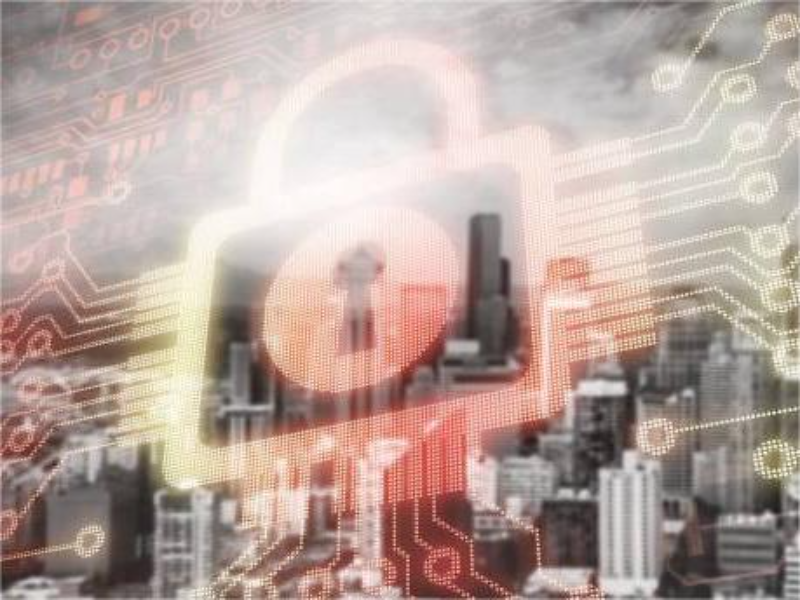- Cybersecurity is all about ensuring the security of computer systems and electronic data, and as cybercrime becomes more frequent, cybersecurity practitioners are increasingly needed to protect individuals, organisations and their information.
- According to the Cybersecurity and Infrastructure Security Agency (CISA), “Cybersecurity is the art of protecting networks, devices, and data from unauthorised access or criminal use, and the practice of ensuring the confidentiality, integrity, and availability of information.”
- With the advent of new technologies, from self-driving cars to Internet-enabled home security systems, the danger of cybercrime has become even more acute.
What is cybersecurity?
Cybersecurity includes all technologies and practices that ensure the security of computer systems and electronic data. And, in a world where more and more of your business and social lives are online, it’s a huge and growing field with many types of cybersecurity roles to choose from.
According to the Cybersecurity and Infrastructure Security Agency (CISA), “Cybersecurity is the art of protecting networks, devices, and data from unauthorised access or criminal use, and the practice of ensuring the confidentiality, integrity, and availability of information.”

Why is cybersecurity increasingly important?
Being hacked isn’t just a direct threat to confidential data that companies need. It can also damage their relationships with customers and even put them in significant legal jeopardy. With the advent of new technologies, from self-driving cars to Internet-enabled home security systems, the danger of cybercrime has become even more acute.
No wonder, then, that Gartner, an international research and consulting firm, predicts that global security spending will reach $188.1 billion in 2023. Gartner also predicts that the market will reach $288.5 billion by 2027.
“We’re seeing a huge demand for cybersecurity practitioners,” says Jonathan Kamyck, senior associate dean for STEM programs at Southern New Hampshire University (SNHU). Some of the things you used to do over the phone or in person are now done via email or conference calls, which brings up a lot of complications related to information.
Today, the need to protect confidential information is an urgent concern at the highest levels of government and industry. State secrets can be stolen from the other side of the world. Companies whose entire business model relies on control of customer data may find their databases compromised. According to the Federal Trade Commission (FTC), the personal information of 147 million people was compromised by a breach at credit reporting company Equifax in just one high-profile case in 2017.
What are the types of cybersecurity?
Here are some common types of network security:
Application security: According to VMWare, application security refers to measures that are integrated into an application during the application development process to protect the data or code within it from theft or hijacking, and these protection mechanisms are designed to protect the application after development.
Cloud Security: According to Skyhigh Security, cloud security is a convergence of technologies and policies designed to protect data, applications, and associated infrastructure in a cloud computing environment from internal and external threats, designed to prevent unauthorised access and ensure the overall security of data in the cloud.
Infrastructure security: According to CISA, critical infrastructure security describes physical and cyber systems that are critical to society and whose incompetence would have a devastating impact on our physical, economic, or public health and safety.
Internet of Things (IoT) security: The Internet of Things is the concept of connecting any device to the Internet and other connected devices. According to IBM, the Internet of Things is a network of connected things and people, all of which share data about how they are used and their environment. These devices include appliances, sensors, TVS, routers, printers, and countless other home networking devices. Securing these devices is important, and according to a Bloomberg study, security is one of the biggest barriers to widespread adoption of iot.
Network security: According to Cisco, network security is the protection of network infrastructure from unauthorised access, abuse, or theft, and these security systems involve creating a secure infrastructure for devices, applications, and users to work together.
What is a cyberattack?
According to International Business Machines Corporation (IBM), a cyberattack is a malicious attempt to gain unauthorised access to a computer system in order to steal, expose, modify, disable, or eliminate information.
According to IBM, there are many reasons behind cyberattacks, such as cyberwarfare, cyberterrorism, and even hacktivists, which fall into three broad categories: criminal, political, and personal.
IBM reports that attackers motivated by crime typically seek financial gain through the theft of money, data theft, or business disruption. Similarly, personal attackers include disgruntled current or former employees who take money or data in an attempt to attack a company’s systems. Sociopolitical motivated attackers want attention for their cause, causing their attacks to become known to the public, which is a form of hacktivism. According to IBM, other forms of cyberattacks include espionage, spying to gain an unfair advantage in response to competitive and intellectual challenges.
According to Varonis, ransomware attacks have increased 13% in the past five years, with an average cost of $1.85 million per incident. In addition, according to Datto, 13% of small and medium-sized businesses reported ransomware attacks in the past year, and 24% of respondents reported experiencing at least one attack.
Here are some of the most common threats in cyber attacks:
Malware: According to CISCO, malware, also known as malware, is invasive software crafted by cybercriminals to illegally gain access to data or harm computers and their systems. According to Cisco, malware has the ability to leak large amounts of data, and common malware includes viruses, worms, Trojans, spyware, adware, and ransomware.
Phishing: According to Cisco, a phishing attack is a practice of sending fraudulent communications while appearing to be a reputable source. This is usually done via email or phone calls, with the goal of stealing sensitive data, such as financial or login information, or installing malware on targeted devices, according to Cisco.
Ransomware: According to CISA, ransomware is a type of malware designed to encrypt files on a target device, making them and the systems they depend on unusable. According to CISA, once the system is encrypted, actors demand a ransom in exchange for decryption.
Viruses: According to the SBA, a virus is a harmful program designed to spread from a computer to a computer as well as other connected devices. According to Proofpoint, the purpose of viruses is to give attackers access to infected systems, and many pose as legitimate applications, but then cause damage to the system, steal data, interrupt services, or download other malware.
Developing cyber awareness
Held every October, Cybersecurity Awareness Month encourages individuals and organisations to play their part in securing cyberspace, though anyone can practice being aware of cybersecurity at any time, Forbes reported. Awareness of the dangers of browsing the web, checking email, and interacting online are all part of developing cybersecurity awareness.
Cybersecurity awareness can mean different things to different people, depending on their technical knowledge. According to Forbes, making sure individuals get the proper training is a great way to inspire lasting behavior change.
While cybersecurity awareness is the first step, employees and individuals must embrace and proactively use effective practices, both professionally and personally, to be truly effective, Forbes reported.
Getting started with cybersecurity awareness is easy, with many resources readily available on the CISA government website, depending on your needs. Whether you need formal training or a monthly email with cybersecurity tips and tricks, any awareness and training will influence behavior and bring about positive changes in the way you view cybersecurity.

